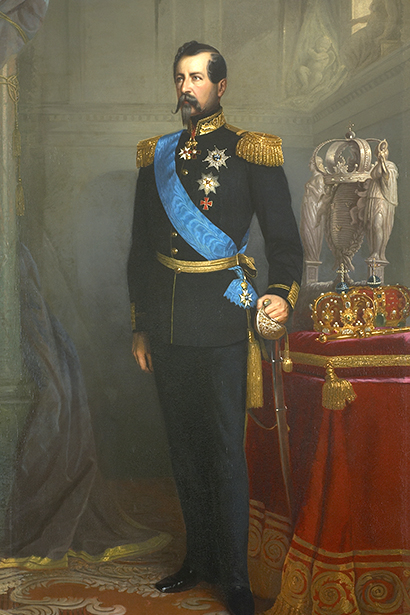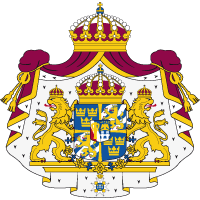
King Oskar I
Oscar came to Sweden from France at the age of 11, and succeeded his father at the age of 45.In contrast to his father, he was less conservative and pursued a more reformist policy.
Oskar was a keen writer, and wrote about subjects including the need for modern prisons. He opposed the death penalty and was committed to public elementary schooling.
The liberals had great expectations of Oskar. Oskar's perceived reformist views would now be translated into reality. The legislative reforms included equal inheritance rights for sons and daughters and the abolition of the guild system, whereby various craft professions had been merged into monopolistic associations.
Unsettled by the 1848 revolutions in Europe, Oskar I became a more conservative monarch who did not want to relinquish further power.
Oskar was ill when his son Crown Prince Karl (XV) stepped in as regent in 1857.
King Oskar I. Painted by Arvid Julius Gottfried Virgin (1831–1876), after an 1856 original by Carl Theodor Staaff. The painting hangs in the Bernadotte Gallery at the Royal Palace. Photo: Alexis Daflos/Royalpalaces.se










